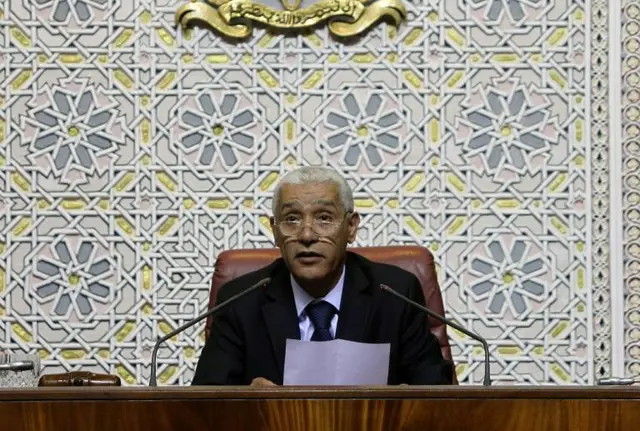By APD writer Sun Chenghao
Translated by Shi Xiaomeng
As the first anniversary of U.S. President Donald Trump’s inauguration draws near, it is time to take stock of what Trump has done over the past year. Unexpected moves in U.S. foreign policies have indeed kept dazing the world. Trump rode a wave of anti-globalization sentiment to the White House, and he has kept to the course after taking office. He has shown a tendency towards nationalism, especially economic nationalism, has pulled the United States out of multiple international organizations and agreements, and has repeatedly resorted to unilateral moves. Generally speaking, three features are on display.
**First, withdrawing from some international organizations or international agreements on the grounds that the United States is unhappy, dissatisfied or at a disadvantage. **Such actions will lead to an uncertain future of international consensus and will have a negative impact on international cooperation. In October this year, Trump accused Iran of not complying with a nuclear deal and kicked the ball of the Iranian nuclear issue to the U.S. Congress, which triggered Iran’s strong dissatisfaction. Also this month, the Trump administration announced that the United States would quit UNESCO because of what it called the anti-Israel bias of the UN cultural agency.
In December, the Trump administration said it would end U.S. participation in the UN-led process which aims to nail the Global Compact on Migration.
Second, backpedaling on the battle against climate change, among other moves that have seriously hindered the progress of global governance. On June 1, 2017, the Trump administration announced that the United States would withdraw from the Paris Agreement. On Oct. 12, the administration made another announcement on repealing the Clean Power Plan, a regulation limiting planet-warming carbon dioxide emissions from power plants. Although some federal states, cities and big enterprises are committed to combating climate change as non-state actors, breakthroughs can hardly been made without the efforts of the U.S. government.
Trump pressed Canada and Mexico to renegotiate the North America Free Trade Agreement (NAFTA)
Third, breaking the rules of regional economic governance, which will possibly lead to the revival of global trade protectionism. The Trump administration has announced its withdrawal from the Trans-Pacific Partnership (TPP), a trade agreement that had been established painstakingly during the administration of former U.S. President Barack Obama. Trump also pressed Canada and Mexico to renegotiate the North America Free Trade Agreement (NAFTA). Trump’s approach of denying what has been established or starting all over again would not only result in chaos in regional economic governance but also lead to the revival of trade protectionism at a global scale. This would increase the risks of trade frictions or even trade wars among nations and would also add uncertainties to the prospect of globalization.
Trump and the so-call “Anything But Obama” approach
Trump’s frequent moves of breaking the international consensus are out of his personal needs and his purpose to cater to U.S. domestic politics. From the personal perspective, Trump still pursues the so-call “Anything But Obama” approach. He wants to shape a diplomatic roadmap that is distinctive from that of Obama, overthrowing the results achieved by his predecessor and then putting on his own marks. The achievements of Obama’s multilateral diplomacy and reaching-out diplomacy include reaching the Paris climate agreement, normalizing the U.S.-Cuba relations and sealing the Iranian nuclear deal. Trump’s pulling back on these diplomatic stances reflected his disparate diplomatic thinking from Obama. In comparison, Obama was more idealistic and had been focusing on “smart power” diplomacy. Trump prefers traditional realism, and that is why he has proposed the policy of principled realism.
From the perspective of domestic politics, Trump is eager to consolidate his voters’ base. Due to ineffective medical reform, slow tax reform and suspended infrastructure construction in the United States, Trump has been faced with setbacks or delays in addressing domestic issues. Some voters began questioning Trump’s ability to govern, with average poll ratings dipping to under 40%. To demonstrate that he is not weak in fulfilling his campaign promises, Trump chose to take actions in the diplomatic field which has less power limits. And breaking the international consensus is an important method for him to rapidly achieve his goals.
Over the past year, the U.S. diplomacy has been shifting from multilateralism during the Obama administration to “America First” under Trump’s leadership. That means the United States will no longer comply with or implement anything that is not in its own national interest in the short term. Because of such a self-centered policy, the
international community began doubting the continuity and stability of U.S. foreign policies and questioning the legitimacy of the United States as a global leader. Besides, the stable and sound development of the world order has also been affected.
Trump in China
As for countries or regions like China and Europe, multilateral cooperation remains a significant choice in addressing global hot issues. The U.S. shift will create a vacuum in the world’s multilateral platform and will challenge the existing world order. In the long term, “America First” is not in the interest of the United States, neither would it benefit the whole world. If the United States cannot balance its own rights and its responsibilities in the world under Trump’s leadership, “America First” will ultimately turn into “America Alone.”
Sun Chenghao, Research Fellow at Asia Pacific Institute, is an assistant research fellow at the Institute of American Studies at China Institutes of Contemporary International Relations, focusing on American domestic politics and foreign policy. He is also the translator of books including National Insecurity: American Leadership in an Age of Fear, Running the World: The Inside Story of the National Security Council, etc.
(ASIA PACIFIC DAILY)
 简体中文
简体中文

